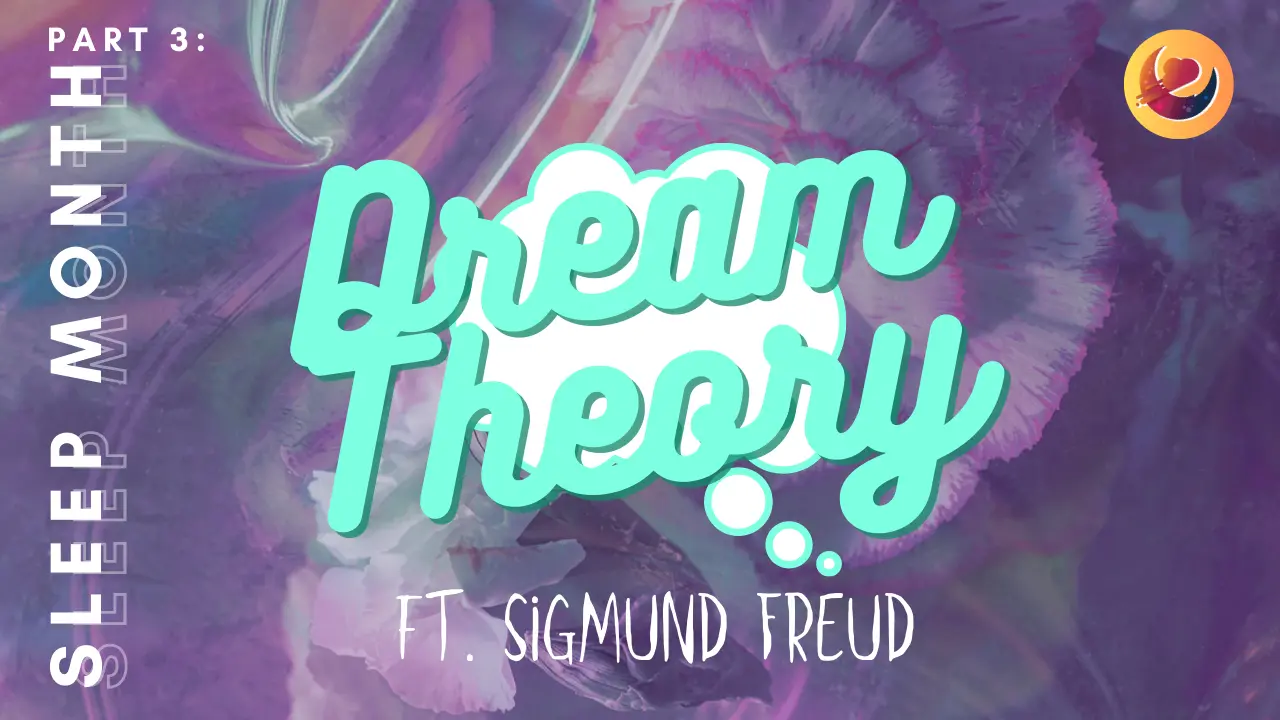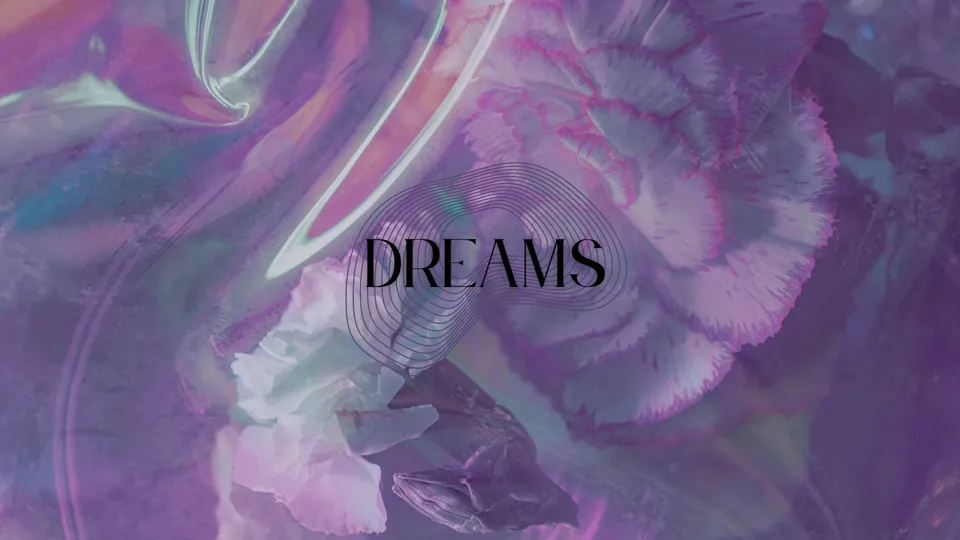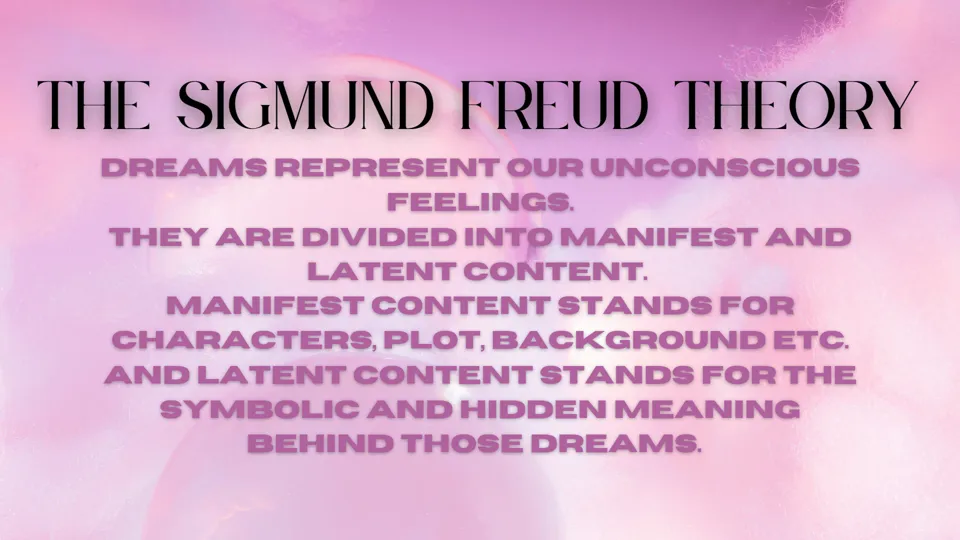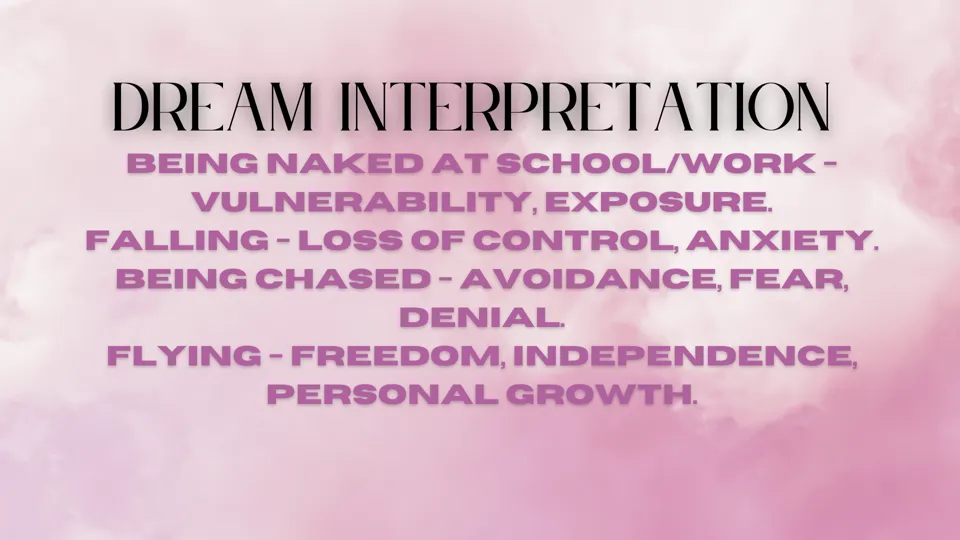By Prathamesh Kapse | 24th May, 2023
In this part of The Sleep Month, discover what your dreams are trying to tell you. Dreams bring out your unconscious feelings, wishes, desires, and sometimes traumatic experiences, too. Find out the hidden meanings of your dreams by studying The Psychoanalytical theory of Dreams proposed by Sigmund Freud.

Why Do We Dream?
Dreams are surreal experiences. The boundaries of reality seem to blur. Fantasies take over. Everything gets a new definition. The extraordinary becomes the new ordinary. These experiences are meant to be forgotten. All that’s left is a weird feeling about them. We forget 95% of our dreams within ten minutes of waking up. All we might remember is that we were falling after something happened; someone was chasing us, or that we were naked at school or work. These are some of the most common examples of dreams that people have. We’ll talk more about what these dreams symbolize.

Our brains cannot create something entirely new. All it can do is piece together the information it has gathered over its lifetime. Sometimes, you might see sharks the size of a goldfish. Sometimes, a goldfish is the size of a shark. Sometimes you see something entirely out of your understanding, but your brain pieced it together into a new object, setting, or just a random entity. There are an extensive number of theories about dreams and why we dream. Some say we dream to forget; some say we dream to remember. Some say dreams are random, while others say dreams have a meaning. But the most complex thing in the universe cannot do something without purpose, right? So, I like to believe dreams have a purpose. They always do.
After all, the molecular structure of Benzene (an organic compound) was discovered by Friedrich August Kekulé in his dream (Don’t believe me? See for yourself). So, perhaps they do have a purpose.
Some Theories About Dreams, In Brief.
1. Information Processing Theory: It is believed that dreams help us store and process all the information we have gathered throughout the day. It also stores all the valuable information in our SD cards and discards all the unnecessary information during dreams. Dreams help us integrate our knowledge into real-life scenarios.
2. Activation Synthesis Theory: When we sleep (as discussed in part one of the sleep month), there is electrical activity inside the brain. Neurons cause this. Now, our conscious mind likes to stay in control. It doesn’t want anything that isn’t in his possession. So, the theory suggests that dreams are just an attempt of the brain to make sense of this neural activity inside the brain when we sleep.
3. Threat Simulation Theory: You might know of the theory proposed by Jean Baptiste Lamarck, known as Lamarckism. It is a theory of evolution that says organisms can pass on acquired characteristics to their offspring. But here, we focus on another statement. It said that the organs used often by the organism evolve for the better, and the unused organs degrade and vanish out of existence over a long period. Now, we don’t usually face situations like falling out of a building or being chased by someone. So, these dreams are our brain’s way of preparing us for the possible case.
These are a few of the multitude of theories about why we dream. The one we will discuss at length is The Psychoanalytical Theory of Dreams by Sigmund Freud.
The Psychoanalytical Theory Of Dreams By Sigmund Freud.
Everybody has feelings, wishes, socially unacceptable desires, urges, etc., that we cannot let out for our reasons. So, we hide them somewhere in our minds. These are present in our subconscious or unconscious mind, and when we dream, they show up. Sigmund Freud believes that dreams are a product of our unconscious minds and serve as a means for them to express hidden desires, wishes, urges, and feelings. Sometimes, they also include traumatic or taboo content. These feelings, if shown out in public (most of the time), make us the prey for judgemental predators, i.e., society. He proposed that these unconscious feelings and desires are heavy influencers of our dreams, which must be crystal clear by now, as I have stated throughout this article.

Freud believed dreams consist of two layers: Manifest and Latent. This can be considered analogous to movies, films, and plays. The manifest content stands for the film's characters, settings, plot, and background. In our dreams, they stand for the weird beings (from one of my dreams- an old lady who is a winter soldier), twisted plots (the old lady winter soldier was chasing me!), and characters like sharks the size of a goldfish (another one of my dreams).
Latent content is the theme and messages the movie is trying to spread. It represents the symbolic and hidden meanings the dream contains. The significant part of the dream is the latent content because it brings out all we feel about ourselves and our surroundings. It can help us analyze ourselves and get better mentally. Ancient Hindu texts like the Upanishads and The Yoga Sutras of Patanjali mentioned the practice of Dream Yoga or Lucid dreaming. This would help the individual access the parts of their brain that were rather consciously inaccessible and help in getting better. It also allows them to navigate parts of their dreams and explore.
The Manifest and Latent content focuses on what happens in the dreams. What happens after the dreams is quite interesting. The dreams are undoubtedly interesting, but the stuff we can do after the dreams and their applications amaze me. The next step is dream interpretation. You analyze what happened in your goals and then try to find the symbolic meaning. Once you see the essence, you know what your mind tries to convey. If you're stuck, you can find the hidden message that might be the only thing you need to improve yourself.
Have you ever dreamt of being naked at school or work?
According to Freudian theory, dreams about being naked at school or work often symbolize feelings of vulnerability or exposure. Freud believed that nudity in dreams represents our unconscious desires and feelings of shame or guilt about these desires.
Ever had a dream that you’re falling or being chased by someone?
Falling in dreams is often associated with losing control or a sense of insecurity. It can reflect anxieties, uncertainties, or a lack of stability in waking life.

This is barely scratching the surface when it comes to dream interpretation. It goes much beyond dreams about falling, being chased by someone, or being naked at school or work.
In the next part of the sleep month, YOU are going to be the ones choosing the topic for the article. I’ll list four topics below, choose one from them and let me know in the comments! You can also DM me on Instagram or Discord (links provided in my author bio).
Topics for The Finale of The Sleep Month.
1. Sleeping Productively: Digital Detox, Sleep Patterns, and more.
2. Sleep strategies: Deal with Insomnia and improve sleep quality.
3. Lucid Dreaming: Take control of your dreams.
4. The Power of Power Naps: Do They Really Help?
Happy Dreaming!
This is the third of a four-article series on Sleep. Check out the first article: What Happens When We Sleep? and the second article of this collection: Effects of an Improper Sleep Schedule.
Thumbnail Design by Mudit Jha






Forgot password?
Close message
Subscribe to this blog post's comments through...
Subscribe via email
SubscribeComments
Post a new comment
Comment as a Guest, or login:
Connected as (Logout)
Not displayed publicly.
Comments by IntenseDebate
Reply as a Guest, or login:
Connected as (Logout)
Not displayed publicly.